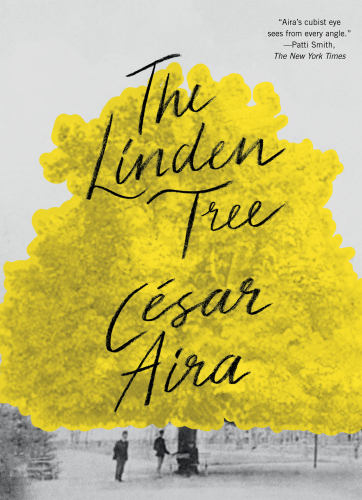
The Linden Tree
کتاب های مرتبط
- اطلاعات
- نقد و بررسی
- دیدگاه کاربران
نقد و بررسی

December 1, 2017
This latest addition to the growing number of English translations of works by the prolific Aira (The Little Buddhist Monk & The Proof) is a perhaps fictionalized reminiscence about growing up in the small Argentine town of Coronel Pringles during the Peron era. The basic elements of an autobiography are present: an only child raised in an enormous house by a black electrician father and a white mother with disabilities relates anecdotes about his childhood chums, his first job, and school outings. Though Aira is not quite as rambling here as in his other works, in deference to the memoir format, he maintains a stylistic quirkiness that leads him to jump from one topic to another, seemingly at random, in what comes across as a confessional tone. Touches of absurdity grace the pages, such as the family's living in only one room in a 25-room mansion. References to the Peron regime provide historic context. Above all, Aira refers to the role of an often selective memory in his life that brings him closer to the present. VERDICT A good introduction to Aira for those unfamiliar with him, as noted translator Andrews skillfully conveys the lively prose and subtle humor of this 2003 novel into English.--Lawrence Olszewski, North Central State Coll., Mansfield, OH
Copyright 2017 Library Journal, LLC Used with permission.

February 15, 2018
An ethereal ramble through the sweet haze of nostalgia by the prolific Argentinean writer Aira (The Little Buddhist Monk & The Proof, 2017, etc.).When is memory not true? If we can only live our lives in one direction, how can we ever learn from our future? These are the heady ideas Aira seals firmly in a fictional memoir that finds him sauntering through the past of a man nearly exactly like him. The unnamed narrator was born in 1949, the same year as the author, in the same provincial town of Coronel Pringles, and now, like Aira, he is living in Buenos Aires. He begins by telling the story of his parents: his father, a tall, handsome black man so nervous he might die of fright; his mother a disabled woman of European descent with a wicked sense of humor. Our narrator has inherited his father's nervous disposition, suffering with unbending anxiety. "Death is no solution because my corpse would get up too," he says. "What can I do? It's beyond my control, I can't help it." In a history laced slightly with the history of Peronism, Aira paints a colorful picture of his past along with a couple of pointed lessons about storytelling. In the first, he declares, "If you think about it, everything is allegory. One thing signifies another, even the fact that I have ended up becoming a writer and composing this true account." In another, he watches his father struggle with the writer's experience. "It's all in reverse," says his father. "That's what it is. The writer has to live life in reverse." We learn the adult Aira has spent his whole life pondering this statement, trying to reconstruct his father's reasoning, finally setting off to rediscover his old self.A funny, sardonic, and richly emotional journey through one man's interior experience.
COPYRIGHT(2018) Kirkus Reviews, ALL RIGHTS RESERVED.

February 26, 2018
Aira (Dinner) reveals little of substance in this haphazard “true account” of his upbringing in Pringles, Argentina. “I was born in 1949, at the climax of the Perónist regime,” Aira writes; he describes how the iconic (and infamous) presidency of Juan Perón roiled his parents’ marriage. Aira’s father (“a staunch Perónist”) develops a deep ambivalence about life after Perón’s government falls. His mother, conversely, becomes an anti-Perónist given to “defamatory and truly delirious” rants. Aira offers clues about the underlying causes of his parents’ supposedly political disagreement (including his father’s rumored affair), but is more focused on presenting an array of charming but minimally engaging anecdotes. Moths hang from the kitchen ceiling “like little Chinese lanterns,” and a statue with a bared breast is erected in the town plaza. Fans of Aira may gain occasional insight into his writerly preoccupations from these discursions, but the seemingly random jumps between recollections prevent an edifying portrait of the novelist as a young man from emerging. While explaining his inclusion of a favored game, Aira wonders, “who can say what might turn out to be important?” This novella cannot overcome his disinclination to make decisions about such crucial questions.

























دیدگاه کاربران